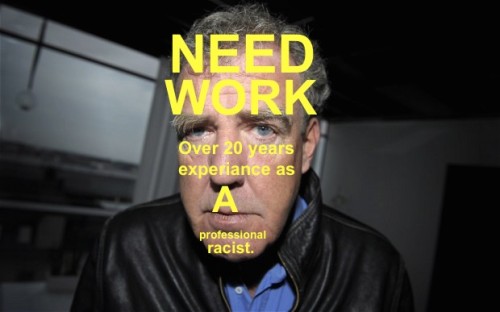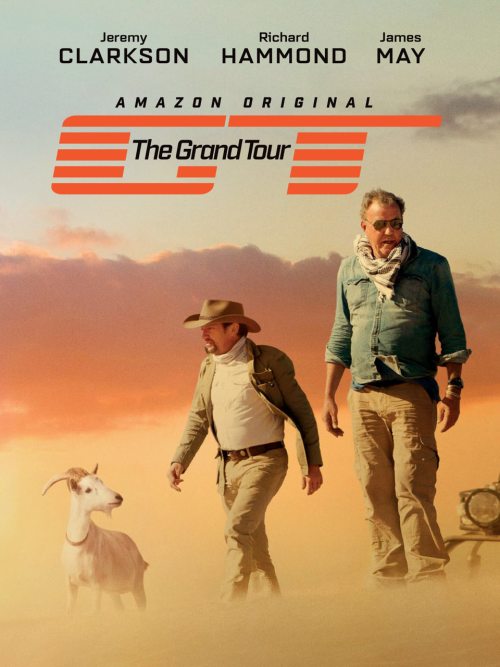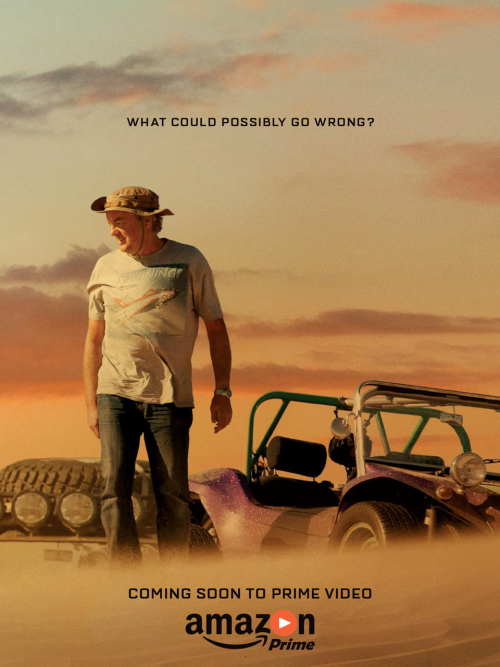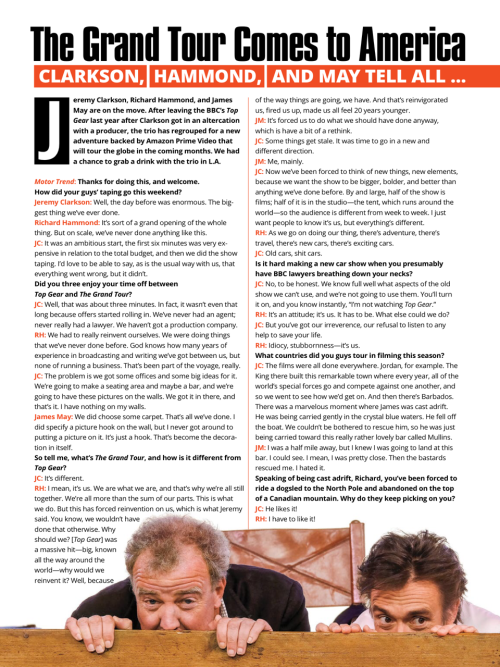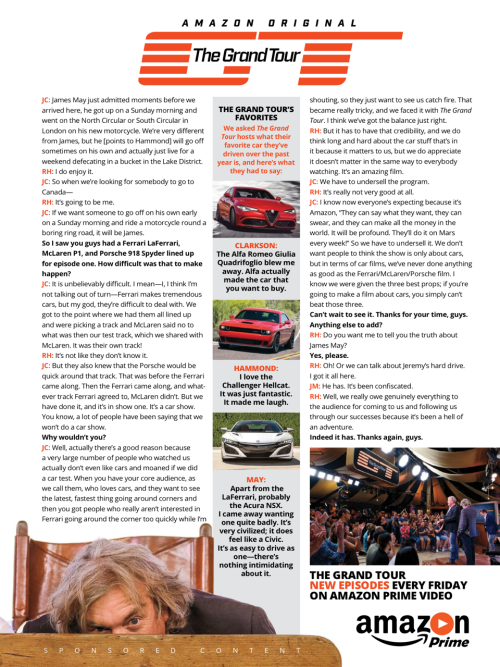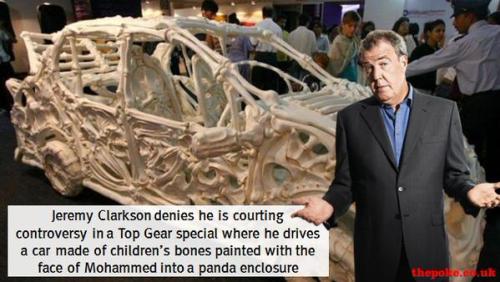#jeremy clarkson
The Transfagarasan road, the best road in the world according to Jeremy Clarkson from Top Gear. Stunning photographs by Szabi Ignacz.
Post link
The whole place was a seething cauldron of braying Irish labourers and sloshing Guinness and cheap cigarette smoke until, with two furlongs to go, the door burst open and a lunatic dashed in. He leapt onto the bar, turned the television off and then ran out again. Welcome, everyone, to the man who would become my closest friend: AA Gill.
He was living back then in a dog basket in Kensington, dealing drugs to pay for his colossal thirst and hanging out with a group of very posh heroin addicts who spent their days forgetting to go to the funerals of their flatmates and friends. That he didn’t croak then, in a puddle of his own urine and vomit, is a miracle.
But he has now. He died last weekend, leaving us with a body of work that beggars belief. It beggars belief partly because he didn’t start writing until he was 38 but mostly because of his profound dyslexia. He’d have had a better chance of getting his letters in the right order if he’d lobbed a tin of alphabet soup into a ceiling fan. He’d often text me to say where we were having lunch and I’d have to use a Turing decoder to work out what the bloody hell he meant. “Twersy”, for instance, was “the Wolseley”.
The way Adrian dealt with this was a lesson to all sufferers today. History was his favourite subject at school but he always got a bad mark, so he asked his teacher why. You’re one of the best in class, said the teacher, but you’ve got a problem with your writing. Adrian decided angrily that he didn’t have the problem; the teacher did. And he vowed ever afterwards to make it someone else’s problem, not his own.
Adrian struggled, too, with reading. It would take him half an hour to read the inscription on a statue or a war memorial, which is something he did a lot, and yet somehow he knew everything about everything.
Why do the lampposts on the Mall have ships on them? Who invented chewing gum? How do the pirates off Somalia operate? All of that — and all of everything else — somehow was in his head. Polymath doesn’t even begin to cover it. He was Wikipedia with a cravat.
But his real gift, as we all know, because he was the cornerstone of all our Sunday mornings, was not just delivering the facts. It was making them come alive. Once, when I was away, he wrote my motoring column and said his TVR sounded like two lesbians in a bucket. It remains the best description yet of the noise a V8 makes at tickover. And it wasn’t even his specialist subject.
He also said that an Aston Martin sounded like Tom Jones bending over to pick up the soap in a Strangeways shower. And more recently my new television show is “Top Gear in witness protection”. No one, and I do mean no one, could phrase-make like him.
And lines such as this didn’t come to him after hours of pacing up and down and sucking on the end of a Biro. They were a constant soundtrack to his life. We were flying once to Blackpool, at night, in a helicopter. And after a long period of zooming over nothing but inky blackness we passed over the sodium orange glow of a town. “What’s that?” Adrian said to the pilot. A check on the map revealed it to be Preston. Adrian looked at it quizzically for a moment. “What’s the point of that?” he asked.
Somehow he knew everything about everything. He was not just a polymath; he was Wikipedia with a cravatLater he met a Tory cabinet minister who blustered on and on about how important it was for people to get on their bikes and make something of their lives: start a business perhaps. “That’s what I did when I was young,” said Adrian enthusiastically. The Tory went into a back-slapping, that’s-the-ticket routine, which was cut short when Adrian said: “Yeah. I was a drug dealer.”
Over the years, Adrian stopped the drugs and the booze and even the cigarettes by becoming addicted to other stuff. Mostly this involved buying trousers. I think he bought a new pair most days. And another cravat. And a cardigan or two. And perhaps another stupid suit, lined this time with all the flags of Siena’s contrade.
Which brings us on to the man. He was unfathomable, really. Because he was a screamingly camp straight man, an un-Christian believer and a potty-mouthed poet. C*** was pretty much his favourite word.
It’s been reported that he was upset and bitter about being denied expensive treatment for the cancer that killed him. But he wasn’t. He accepted it. Because he was a terrible old leftie who thought like a Tory. Or it might have been the other way round. I never really knew.
Occasionally, when we wrote pieces together, we’d plan them so I’d have one opinion and he’d have another. But as often as not he’d get to where we were going and he’d change his mind. We went to Midland in Texas, which I knew he’d think was a hellhole, and he loved it. So I took him to France, which he had always loathed, and he decided as soon as we arrived that he didn’t.
Before he died we were planning to write a piece together about whether Italians were more interested in food or cars. If it had happened I just know he’d have said the Fiat 500 was way more important than some silly bits of fish in a tomato sauce. (Which it is, by the way.)
It sounds as if he was a contrarian but he actually wasn’t. He just had opinions, and sometimes they’d change and sometimes they wouldn’t, and sometimes they’d contradict one another. And he really, really didn’t care if you agreed with him or not.
Nor did he have an Off button. If he thought your new sofa was ghastly, he’d tell you. And if you’d put on a bit of weight, he’d bring it up. Once an artist proudly showed him their work and he said: “That’s amazing. How long have you been painting with your feet?”
Jeremy Clarkson says AA Gill often made him laugh so much he couldn’t breathePETER MARLOW
I’d watch people sometimes, spooling up for an argument with him, and I’d sit there thinking: “Oh, no. Don’t poke the beast. Don’t poke it.” But they usually did, and then he’d eviscerate them, because he was faster than they were and funnier and cleverer.
It’s been said that Adrian and I were very close, and we were. But the truth is, he was close to thousands and thousands of people. If you walked down any street in what he called London — nothing with an “E” or an “N” in the postcode — you’d have to stop every 20ft so he could embrace someone coming the other way. In every restaurant it would take him 20 minutes to get to his table because of all the hugs and wide-eyed “daaaaaahlings” he’d have to do on the way. It seemed sometimes that he knew everyone.
Three days before he died, he had Hillary Clinton’s former security adviser, James Rubin, on one side of his hospital bed, reading him bits from The Guardian, and Rebekah Brooks on the other. Then in came the designer Tom Ford to talk spectacles.
He had thousands and thousands of friends because, deep down, he was kind, warm-hearted and extremely loyal. But by far and away his greatest gift was his ability to make people laugh. Me especially. When we broke our golf virginity together in Cheshire, I damn nearly hacked up my own spleen. When he decided it would be quicker to kick the ball round the course, I honestly thought: “If I don’t breathe in soon, I’m going to die.”
It was the same story when he accidentally reversed an Abrams main battle tank into an ornamental lake in the middle of Baghdad, or on shoots when we’d spend all day trying to land birds on each other’s head. Or when I opened the paper and saw the restaurant he’d reviewed had been given no stars. “Oh, this is going to be good …” I’d think. And it always, always was.
Yes, he was brilliant at writing serious stories about serious issues. And he was brilliant also at picking apart a television programme or telling you why it’s a good idea to put nutmeg on cauliflower cheese (which it isn’t). But he was at his absolute best when he was being funny.
Towards the end, he and I were sitting around in Whitby with the comedian Jimmy Carr. Adrian announced he’d just started to watch the Westworld series on the television.
“Ooh,” said Jimmy. “That’s a bit ambitious — it’s a 10-parter.”
It’s the last time I heard Adrian burst out laughing. And that’s what I’ll miss most of all. Well, that, and every other bit of him.







